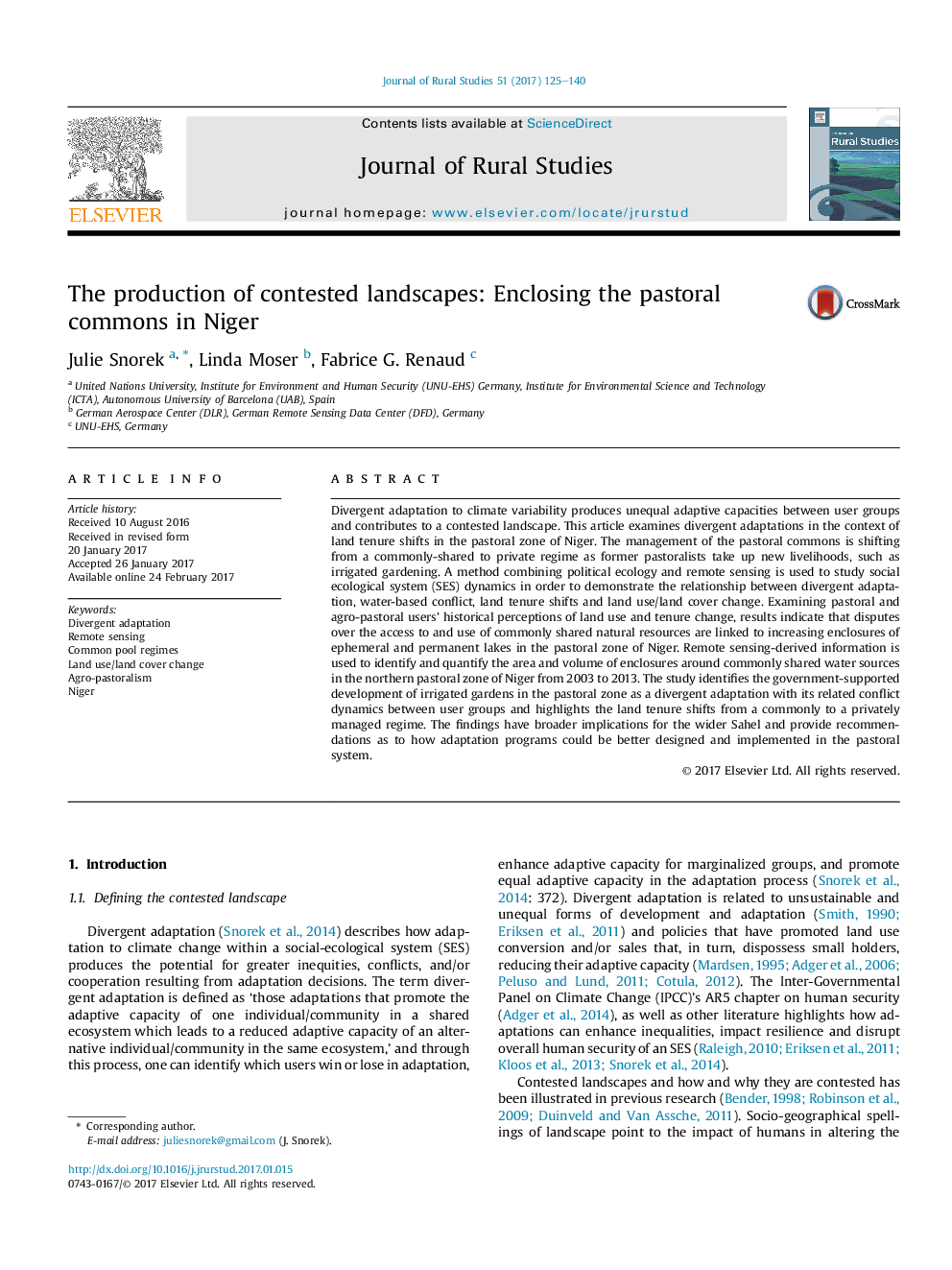| Article ID | Journal | Published Year | Pages | File Type |
|---|---|---|---|---|
| 6460129 | Journal of Rural Studies | 2017 | 16 Pages |
â¢Lakes in Niger's pastoral commons are swiftly being privatized and enclosed.â¢Methodology uses a political ecology-remote sensing approach.â¢Divergent adaptations to climate change are limiting some users' water access.â¢Enclosures (km2) have increased between 101% and 124% in 9 years.â¢Two cases illustrate multiple ways to manage divergent adaptation.
Divergent adaptation to climate variability produces unequal adaptive capacities between user groups and contributes to a contested landscape. This article examines divergent adaptations in the context of land tenure shifts in the pastoral zone of Niger. The management of the pastoral commons is shifting from a commonly-shared to private regime as former pastoralists take up new livelihoods, such as irrigated gardening. A method combining political ecology and remote sensing is used to study social ecological system (SES) dynamics in order to demonstrate the relationship between divergent adaptation, water-based conflict, land tenure shifts and land use/land cover change. Examining pastoral and agro-pastoral users' historical perceptions of land use and tenure change, results indicate that disputes over the access to and use of commonly shared natural resources are linked to increasing enclosures of ephemeral and permanent lakes in the pastoral zone of Niger. Remote sensing-derived information is used to identify and quantify the area and volume of enclosures around commonly shared water sources in the northern pastoral zone of Niger from 2003 to 2013. The study identifies the government-supported development of irrigated gardens in the pastoral zone as a divergent adaptation with its related conflict dynamics between user groups and highlights the land tenure shifts from a commonly to a privately managed regime. The findings have broader implications for the wider Sahel and provide recommendations as to how adaptation programs could be better designed and implemented in the pastoral system.
